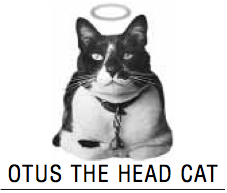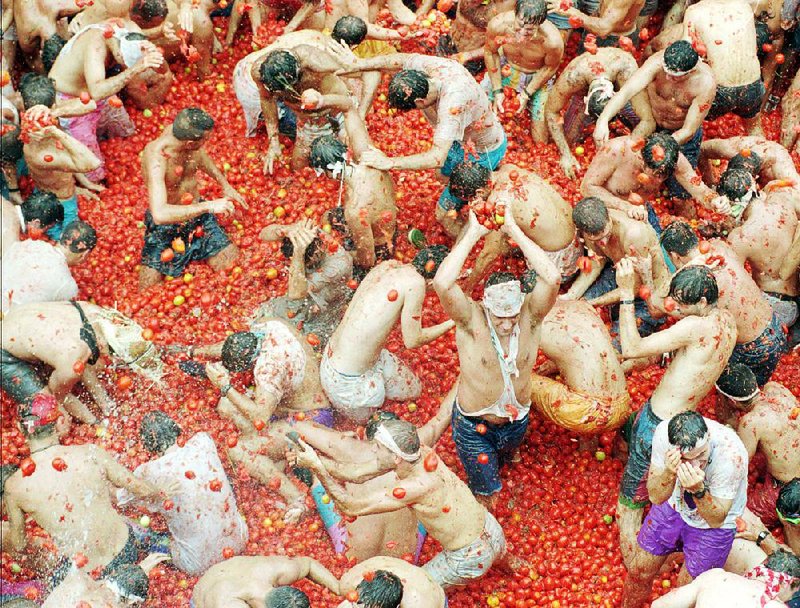Dear Otus,
Reading your astute, whimsical and most habile column each Saturday has been the highlight of my week ever since we moved to Arkansas from my home of North Dakota in 1982 when the Canadians reclaimed part of the state.
Last week, however, you used the word brouhaha in your headline when I'm certain you meant hubbub. Care to explain?
-- Donnie Bruk,
Bella Vista
Dear Donnie,
It was wholly a pleasure to hear from you and to express my deepest empathy to your having to leave your home. The United States was recently on the verge of negotiating for the return of that portion of North Dakota when the Trump tariffs soured the usually phlegmatic Canadians.
I, myself, was forced at the tender age of 3 months from my beloved birthplace beneath a trailer in an RV park in Fayetteville.
That gives me the deeper ability of empathy rather than the passive condition of being sympathetic, which is not a synonym of empathy.

Disclaimer: Fayetteville-born Otus the Head Cat's award-winning column of 👉 humorous fabrication 👈 appears every Saturday.
Both contain "-pathy," which comes from the Greek "pathos," meaning feelings or emotion, but "sym-" simply means "with" feeling, whereas "em-" means "within" feeling. As with brouhaha, meaning a matter of degree.
As were you, I was stunned in '82 when the Canadians became an "amicus curiae" in the joint Hidatsa and Mandan tribal lawsuit that resulted in tossing out the 49th parallel as North Dakota's northern border as established by the London Convention of 1818.
To witness that portion of North Dakota north and east of the Missouri River revert to Manitoba was tough to take. There was quite the brouhaha when the state capital had to move across the river to Mandan.
When I say there was a brouhaha in Bismarck, that's a fairly accurate description. It was far more serious than a hubbub, but not so physical as a kerfuffle or as trivial as a dust-up.
But congratulations on escaping the least visited state in the union with its only claims to fame being it's the home state of Lawrence Welk and Sacajawea.
I would tend to agree with you about the use of brouhaha in last week's headline about the circumstances surrounding the removal of the River Market's iconic maple trees and their sexist replacement will all-male ginkgos.
As you may not know, columnists and reporters never write their own headlines. That critical assignment is left to dedicated professional copy editors who frequently labor in soul-sucking anonymity, privation and penury, motivated by a passion for the language and the ardent desire to serve readers by conveying the essence of the story in the short space available.
This is crucial because, as we all know, fewer newspaper readers get much beyond the headline and first three or four paragraphs these days. I blame the increasingly short attention span on multitasking and the Internet. That's the reason, but it is still no excuse.
The English language is the richest, most dynamic in the world, with about 80 percent derived from other languages, mainly Latin. It is full of subtlety and nuance and mastering it can take a lifetime. You bring up the perfect example.
Brouhaha (plural, brouhae) is pronounced BREW-hah-hah, and comes from late 19th-century French "bruit de haut haut" and means "a highly noisy and overexcited reaction." It also could be an onomatopoeic assimilation from the Hebrew.
Brouhaha also suggests a degree of physical involvement not apparent in a kerfuffle -- "a commotion or fuss, especially one caused by conflicting views." What we had here in the River Market was a kerfuffle.
Etymological research reveals kerfuffle is an alteration of the Scottish Gaelic "carfuffle" from cearr (awkward) and fuffle (disheveled). Many folks were awkwardly disheveled, but not roughed up, following the protest over the trees.
Brouhaha, however, has been a favorite word of headline writers since William Allen White used it in his Pulitzer Prize-winning editorial "To an Anxious Friend" in 1922. Brouhaha consistently makes it near the top of any list of zany English words that are just fun to say.
Others always on the list are bumfuzzle, taradiddle, collywobbles, lollygag, diphthong, doodle, pronk, festooned, sialoquent, bibble, nincompoop, flummoxed, piffle, skedaddle, squelch, canoodle, diddly-squat, flummox, fartlek, snark and snollygoster.
Using these will make you smile.
Until next time, Kalaka, who is quite pauciloquent, reminds you his funniest word is sesquipedalian.
Disclaimer
Fayetteville-born Otus the Head Cat's award-winning column of
humorous fabrication
appears every Saturday. Email:
mstorey@arkansasonline.com
HomeStyle on 08/04/2018
